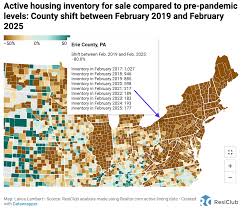The Future of Housing: What to Expect in 2025

Introduction
As we approach the midway point of the decade, the housing market is poised for significant transformations by 2025. With ongoing economic shifts, evolving societal needs, and advances in technology, understanding the anticipated trends in housing is vital for buyers, sellers, and investors alike. The relevance of this topic is underscored by the impact housing trends have on quality of life and economic stability.
Current Trends Shaping Housing
Housing trends are increasingly influenced by various factors, including demographic shifts, economic conditions, and changing preferences. According to the Canada Mortgage and Housing Corporation (CMHC), the country is facing a housing supply crisis, particularly in urban centers. This shortage is expected to continue into 2025, driving prices up and making affordability a major concern for prospective homeowners.
Another significant factor is the rise of remote work, which has changed the demand for housing in urban areas versus suburban and rural regions. Many Canadians are increasingly prioritizing larger living spaces with home offices, leading to a surge in demand for properties outside major cities.
Sustainability and Technological Advances
In addition to these economic factors, sustainability is becoming a key priority for both builders and buyers. The federal government is promoting green retrofits and energy-efficient buildings as part of its commitment to reducing carbon emissions. The Real Property Association of Canada (REALpac) reports that eco-friendly homes are anticipated to see a price premium as more buyers seek sustainable living options.
Technology will also play a considerable role in the future of housing. Smart homes, equipped with advanced technologies for energy management and enhanced security, are expected to become more mainstream. Virtual reality tools for home buying and augmented reality applications for renovation projects will revolutionize how we interact with properties, making transactions smoother and more informed.
Conclusion
As we look towards 2025, the housing market in Canada is expected to be shaped by a complex interplay of economic factors, demographic changes, and technological advances. With ongoing affordability challenges and the urgent need for sustainable solutions, stakeholders in the housing market must adapt quickly. Potential buyers, investors, and policymakers should remain informed about these trends to navigate the evolving landscape effectively. Understanding the emerging dynamics of the housing market will be crucial in making informed decisions, whether purchasing a home, investing in property, or developing housing solutions that meet future needs.





